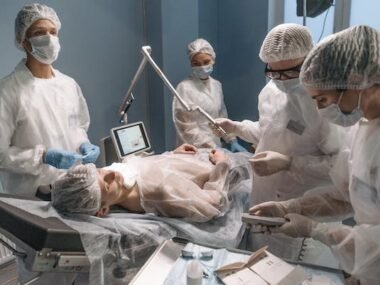Hospital meal schedules have a substantial and complex influence on patients’ recovery, involving a range of physiological, psychological, and therapeutic factors. This is a thorough explanation:
- Nutritional Support: Due to disease, trauma, or surgery, hospitalized patients may have higher nutritional needs. Eating meals on time guarantees that sufferers get the nutrients they need to aid in their recuperation. Sufficient nourishment is necessary for immunological response, tissue healing, and general well-being. Sufficient diet can aid in preventing malnourishment, which can impede recuperation and elevate the likelihood of problems.
- Medication Administration: In order to optimize their effectiveness and reduce adverse effects, many medications must be taken with food or at particular times in relation to meals. Eating at the right time of day guarantees that patients take their prescriptions as directed, which is essential for controlling symptoms, avoiding problems, as well as aiding in the recovery process.
- Blood Sugar Control: Timing meals correctly is essential for controlling blood sugar levels in persons with diabetes or those who are at risk of developing hyperglycemia. Regular meal plans aid in controlling the metabolism of glucose, reducing blood sugar swings and troughs, which can hinder healing and raise the risk of consequences like infections and slowed wound healing.
- Digestive Health: How well patients tolerate food and absorb nutrients may be impacted by the time of their meals, which can also have an impact on gastric emptying and digestion. The healing process can be aided by eating at the right time of day to avoid bloating, discomfort in the gastrointestinal tract, and other digestive problems that might impair appetite and nutrient absorption.
- Energy Levels and Metabolism: Eating at regular intervals helps control metabolism and maintain stable energy levels. Regular meal plans give the body the nourishment it needs to operate at its best, promoting physical activity, tissue repair, and other metabolic functions that aid in the healing process after disease, accident, or surgery.
- Psychological Well-Being: By giving patients, a feeling of comfort, routine, and regularity during their hospital stay, meal scheduling can have an impact on their psychological well-being. Meal patterns that are predictable can help patients feel less stressed and anxious about the future and can make their stay more enjoyable overall, which may aid in their recuperation.
- Patient Satisfaction and Compliance: Providing patients with nutritious meals on time helps them feel better overall and meets their basic requirements. When meals are delivered on time and consistently, patients are more likely to follow dietary guidelines and treatment regimens, which can have a favorable effect on their recovery results.
- Clinical results: Studies indicate that scheduled meals may be linked to better clinical results, such as shortened hospital stays, lower complication rates, and quicker recovery times, but more study is required to demonstrate conclusive causation. Appropriate meal time can improve overall health and optimize patient outcomes by meeting nutritional demands and boosting the efficacy of medicinal therapies.
In conclusion, there are many different physiological, psychological, and therapeutic aspects that play a role in the complicated and diverse effects of hospital meal scheduling on patient recovery. Healthcare professionals can support optimal nutrition, medication management, blood sugar control, digestive health, energy metabolism, psychological well-being, patient satisfaction, and ultimately, recovery from illness, injury, or surgery, by making timely meals a priority as part of comprehensive patient care.
It has been shown that a patient’s recovery and general well-being may be impacted by the timing of their hospital meals. Here are some important things to consider within in relation to this:
- Support for Nutrition: Eating meals on time guarantees that sufferers get the nutrients they need to aid in their recuperation. Sufficient nourishment is essential for wound healing, tissue repair, and general health maintenance.
- Energy Levels and Metabolism: Timing meals correctly can assist maintain stable energy levels and manage metabolism. Eating on a regular timetable helps keep the body’s supply of nutrients constant and prevent energy slumps.
- Medication Administration: In order to optimize their effectiveness and reduce adverse effects, many medications must be taken with food or at particular times in relation to meals. Eating at the right time of day guarantees that prescription drugs are taken as directed, improving their therapeutic benefits.
- Meal time can have an impact on gastric emptying and digestion, which in turn can impair a patient’s ability to tolerate food and absorb nutrients. For instance, eating too soon before bed may make GERD symptoms worse or interfere with sleep.
- Comfort and satisfaction of the patient: Patients frequently find that having meals given at regular times gives them a sense of routine and increases their sense of control over their surroundings. Furthermore, timely food service has been shown to improve patients’ happiness with their overall hospital experience.
- Psychological Well-Being: By giving patients, a sense of routine and normalcy during their hospital stay, meal scheduling can have an impact on their psychological well-being. Additionally, it can enhance a satisfying meal experience, which is beneficial to the emotions and morale of patients.
- Clinical Outcomes: More thorough research is required to definitively demonstrate causation, even if personal experiences and some research suggest that meal time may have an impact on clinical outcomes including length of hospital stay and complication rates.
In general, a crucial component of patient care that takes into account clinical, physiological, psychological, and nutritional factors is making sure that meals are scheduled appropriately in hospitals. In order to optimize recovery and promote general well-being, healthcare practitioners should make an effort to establish consistent meal plans that are adapted to the specific needs and medical conditions of each patient.
The advantages of strategically planned hospital meals for patient recuperation are numerous and substantial.
- Better Nutritional Intake: Eating meals on time helps patients get enough nutrition, which is important for recovery, immune system performance, and general health. Appropriate diet promotes tissue healing and guards against malnourishment, which can hinder healing.
- Optimal Drug Absorption and Effectiveness: Timing mealtimes to coincide with medicine intake promotes maximum drug effectiveness. Meal timing can enhance patient outcomes by optimizing therapeutic advantages and minimizing negative effects while taking drugs that require food.
- Stabilized Blood Sugar Levels: For individuals with diabetes and those who run the risk of having problems with glucose management, eating at regular times helps control blood sugar levels. Meal routines that are consistent help to promote metabolic stability by preventing blood sugar spikes and falls.
- Optimal Digestive Performance: By aligning the body’s natural cycles with food consumption, meal timing promotes a healthy digestive system. This may help reduce the bloating, discomfort in the gastrointestinal tract, and other digestive problems that hospitalized patients frequently face.
- Increased Patient contentment: By addressing fundamental requirements and fostering a sense of routine and comfort throughout hospital stays, timely and predictable meal service improves patient contentment. Satisfaction with the overall quality of care received is positively correlated with a nice dining experience.
- Faster healing and Shorter Hospital Stays: Timely meals can help optimize drug absorption and provide adequate nourishment, which can hasten healing and possibly reduce hospital stays. Patients have a higher chance of making a full recovery and fewer complications if they receive the right nutrition and prompt care.
- Improved Psychological Well-Being: Mealtime regularity helps people feel more in control and normal, which lessens the stress and anxiety that come with being admitted to the hospital. Frequent meal provision can enhance mood, morale, and psychological health in general, making patient experiences more favourable.
- Decreased Risk of Complications: Timely meals combined with good nutrition and stable blood sugar levels can help reduce the risk of complications such infections, pressure ulcers, and slow wound healing. Patients who eat well are better able to handle the strains and difficulties that come with being sick and medical procedures.
In conclusion, hospital meals that are timed perfectly aid in the recovery of patients by providing sufficient nourishment, maximizing the effectiveness of medications, stabilizing metabolic function, improving patient contentment, and fostering general wellbeing. Healthcare professionals can enhance patient outcomes and overall hospital experiences by emphasizing meal time as part of comprehensive patient care.






